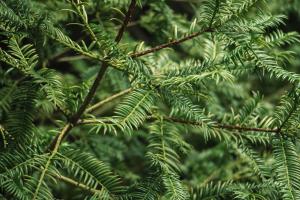When to Plant Apple Trees in Nova Scotia
Nova Scotia is known for its apple orchards, where the climate and soil conditions are suitable for growing a variety of apple species. If you're planning to start your own apple orchard in Nova Scotia, one of the primary factors to consider is the best time to plant apple trees.
Early Spring
The most common time to plant apple trees in Nova Scotia is early spring, typically in April or May. This is the time when the soil has warmed up enough to promote growth, but before the tree starts to bud. In early spring, the ground can still retain enough moisture to support the young apple tree, and the threat of frost is generally reduced. However, it's best to avoid planting too early in the season, as the tree may start to bud or flower too soon, which can cause damage if a late frost hits.
Fall Planting
Another time to plant apple trees in Nova Scotia is in the fall, around September or October. This is often done to take advantage of cooler temperatures and the tree's natural dormancy period, which can help it establish roots before the next growing season. Fall planting can also help reduce transplant shock, as the tree will have ample time to recover and adjust to its new surroundings. However, planting in the fall can also expose the young tree to colder weather and frost, which may require extra protection and care.
Considerations for Planting Time
When deciding when to plant apple trees in Nova Scotia, it's important to consider several factors, such as the type of apple tree, the location and soil conditions of the orchard site, and the expected climate and weather patterns. For example, early flowering apple trees may benefit from fall planting to help them avoid early spring frosts. Meanwhile, apple trees that require a long growing season may do better with early spring planting to maximize their time in the ground.
It's also important to prepare the orchard site well ahead of time, regardless of when you plan to plant. This includes clearing the area of any debris or grass, testing the soil pH and nutrient levels, and ensuring proper drainage and water retention. Taking these steps can help improve the success rate of your apple trees and promote healthy growth and fruit production.
Conclusion
Determining the best time to plant apple trees in Nova Scotia depends on several factors, including the type of apple tree, orchard location, and expected climatic conditions. While early spring and fall are both suitable times for planting, it's important to prepare the orchard site and take steps to protect the young trees from potential frost or other environmental risks. By following these guidelines, you can establish a successful apple orchard that can thrive in Nova Scotia's unique growing conditions.

 how many times do yo...
how many times do yo... how many planted tre...
how many planted tre... how many pine trees ...
how many pine trees ... how many pecan trees...
how many pecan trees... how many plants comp...
how many plants comp... how many plants can ...
how many plants can ... how many plants and ...
how many plants and ... how many pepper plan...
how many pepper plan...






























